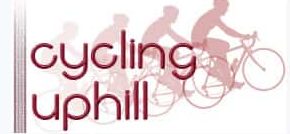It was interesting to write about the evolution of blogging and also gain a quick glimpse of my first efforts at blogging – 12 years ago.
One issue about blogging is checking your writing for grammar and spelling. How important is it?
Readers will fall into different categories.
- Some will not notice mistakes.
- Some will notice quite a few but not mind.
- Some will notice small mistakes and feel it diminishes their reading experience.
Can you spot the difference?
- Clean up your rubbish!
- Clean up, you’re rubbish! (1)
- A panda comes into a bar. He eats, shoots and leaves.
- A panda comes into a bar. He eats shoots and leaves. (2)
At school, I gained a grade A in GCSE English. But whatever I learnt in school, it wasn’t anything about grammar or spelling. I remember my English teacher putting copious amounts of red ink on my scripts, but I never remember learning any particular rules about grammar.
When I went to Oxford University, I remember a professor handing back an essay with a mark B+. He added the comment – “Very good, but it would have been an A – if you had given even the briefest attention to correct grammar and spelling”. I remember being very happy to get a B+ from Oxford. That was good enough for me!
When I started blogging and writing, the occasional reader would point out a mistake. My reaction has always been to correct any errors and try to learn. No one likes to be corrected, but I take corrections in the spirit of learning. Over the past 10 years, I am grateful to people who have taken the time to point out mistakes.
Generally, I’m not a great fan of internet comments; but I find it amusing/ironic that I’ve learnt more grammar rules from internet comments than I did from school or at Oxford University.
If you are writing a personal blog – especially on a subject like cycling – you may feel the standard of grammar and spelling is up to you. From one perspective it is. If people don’t like the standard of your grammar, they don’t have to read. However, if you want to make a living from writing, it is important to aspire to a higher standard – even if perfection is hard to achieve.
Valuing Grammar
Over the past ten years, I have developed a different attitude to grammar and spelling. Because I spend a lot of time writing I have come to value good grammar. To my surprise, I find there is a joy in trying to write correctly. I find that when reading newspapers I can spot mistakes I didn’t use to see. I used to be able to tolerate anything, but now I’ve come to value good grammar. It is interesting to move from one end of the grammar tolerance spectrum to the other. Though my intolerance for bad grammar is muted by my own difficulties, past and present.
I now find that when speaking I can often visualise commas appearing in my speech, especially around sub-clauses.
At the moment, my main work is proof-reading my Biography site where I have been writing biographies for the past 12 years. I can almost tell the year I wrote a biography just by the standard of the grammar. 10-12 years ago, they were often embarrassingly bad. In 2010, I was making my first efforts to learn grammar – there are commas, and semi-colons flashed around the page like confetti.
The difficulty of proof-reading blogs
This is perhaps the part of the blog where I make my excuses.
After writing a blog, I will read it through again and pick up some grammatical mistakes. However, when reading the blog, I will invariably want to edit sentences and add new sentences. Then I have to read a third time to proof-read my new sentences.
I enjoyed writing the blog about blogging. I read through five times before publishing. On the fifth revision, I was still finding a few mistakes. But I thought, that’s enough, I will publish. After posting, I received the email version and so read the email out of interest to check my standard. I found three errors including your / you’re. I edited a sixth time.
Then in the evening, my father wrote an email, and mentioned there was a spelling error in a link to ‘Mow Kop the Kiler Mile’. So it was edited for the seventh time. The published version is often a higher standard than the email version. I have this theory that you will only spot some mistakes after publishing.

After a race, despite being tired, I usually want to write a race report and I’m keen to publish that evening. The next morning, I will revise and edit before the email gets sent at 12 pm. After all day racing, proof-reading is not highest on your list of priorities. For a post like ‘National Hill Climb Championship 2016′, I can revise and update the post for a whole week. That particular post has 18 revisions in WordPress. That doesn’t include the times spent proof-reading the offline article. Even after 18 revisions, you can probably spot some grammar mistakes if you look hard enough.
Getting better at proof-reading
When I make a mistake, I try to be more conscious of that aspect of English in future. When writing your / you’re, you have to be on your guard when you know how easy it is to make a mistake.
The most important thing is whether you value good grammar and spelling. Although I started from a very low standard, I’m at least trying to improve. The problem is that sometimes you want to post a blog without reading through several times.
Common mistakes for the cycling blogger:
- Your / you’re – Your new bike means you’re now ready to cycle.
- Sweat/ sweet – I sweated profusely after three hours of sweet-spot training. (thanks, Howard W.)
- There / their – Their new coach made them cycle there, just so that they could get some miles in. They’re now tired from their efforts to cycle there.
- Affect / effect – The effect of taking beetroot juice is that it affected my performance in a positive way, but had unfortunate side effects on my bowel movements.
- Loose / lose – His loose clothing caused him to lose the time trial by a few seconds, due to unnecessary aerodynamic drag.
- A lot / alot. A lot of people will notice if you use the word alot which doesn’t exist.
- Principal / Principle. The principal reason for the criticism of Team Sky was their principles were not as pure as they suggested.
- Spend / Spent. He was completely spent, getting dropped by the peloton; this was despite spending a fortune on new carbon fibre.
- Its / it’s. It’s great to see the bicycle with its new rightful owners.
Corridor of uncertainty
Despite investing considerable time, there are some issues which always bring a degree of uncertainty. These often involve commas around but and however.
This sentence was an example of comma uncertainty.
But I thought, that’s enough, I will publish.
Footnotes
- Recently I was invited to speak to the Eton College cycling club. It was a most enjoyable evening. During the visit, I happened to visit a classroom of an English teacher who had this on a poster on the wall.
- Eats, shoots and leaves is a popular book about grammar.
- Free kudos to the first person who spots a grammar error in this post.


Perhaps try Grammarly as an extension in your browser:
https://www.grammarly.com/m
Advanced spell check tool.
Thanks Chris, very useful.
Also, off topic, but remember you admiring some portable rollers in an old post, and was reminded of that when I saw the following new product review this week:
https://www.cxmagazine.com/feedback-sports-omnium-trainer-tool-kits-winter-press-cam
Found one Tejvan (sorry!) :
you have to be on your guard when (word missing here) know how easy it is to make a mistake.
I’ve noticed your spelling / grammar can be a bit suspect at times but it hasn’t detracted from my enjoyment of reading your blogs. Adds a bit of character I think.
Kind regards
Chris
Thanks. Virtual kudos. Missing words used to be very frequent.
Just near the end-
‘This sentence was an example of comma uncertainty’, seemed a little uncertain about whether to include a full stop too…
I find there are some mistakes I only see when I print something out.
But like Chris Stroud above, I really enjoy your posts, and have enjoyed this insight into the process of writing as I have the many about the process of riding.
Paul
thanks Paul
Another common mistake in blogs is the use of break/brake, they are often interchanged and used incorrectly.
Well Tejvan, you did ask!
‘ The effect of taking beetroot juice is that it affected my performance in a positive way,’
Sounds like a mix up of tenses there. Should it be ‘was’ instead of ‘is’?
Or perhaps ‘affects’ instead of ‘affected’?
I don’t know if our years at school were contemporaneous, but formal grammar seemed to be somewhat ignored in the ’70s. Teachers spent more time stopping us saying ‘owt’ and ‘nowt’ in place of ‘anything’ and ‘nothing’.
I enjoy the blog, especially when you’re back in Yorkshire, but I must thank you for directing me to Burrington Combe. It made a nice (if slow) double header with Cheddar Gorge on Saturday . You are still KOM by the way.
Now that I’ve committed to print I expect my apostrophes and inverted commas to come under scrutiny. it’s a minefield!
well spotted I think it should be: “The effect of taking beetroot juice was that it affected my performance in a positive way,”
Ha ha! All went well…I think… until that last sentence.
That was a funny article. It makes me want to start writing a cycling blog! I am new on this blog and I have never through mistakes. Anyway I am looking for a bike to buy. I heard about this website Fat Lama (https://fatlama.com/london-rentals/bike-hire?utm_source=frum&utm_campaign=160217). You can rent a bike only for a day and they have lots of different models. As a beginner, I don’t know which model I should try first. Can any expert on that matter help me?
Thank you so much! Emily
I find that using an independent spelling/grammar checker picks up errors that the human brain (mine at least) doesn’t spot, even on the printed page, e.g., Grammarly.
Thank you for sharing